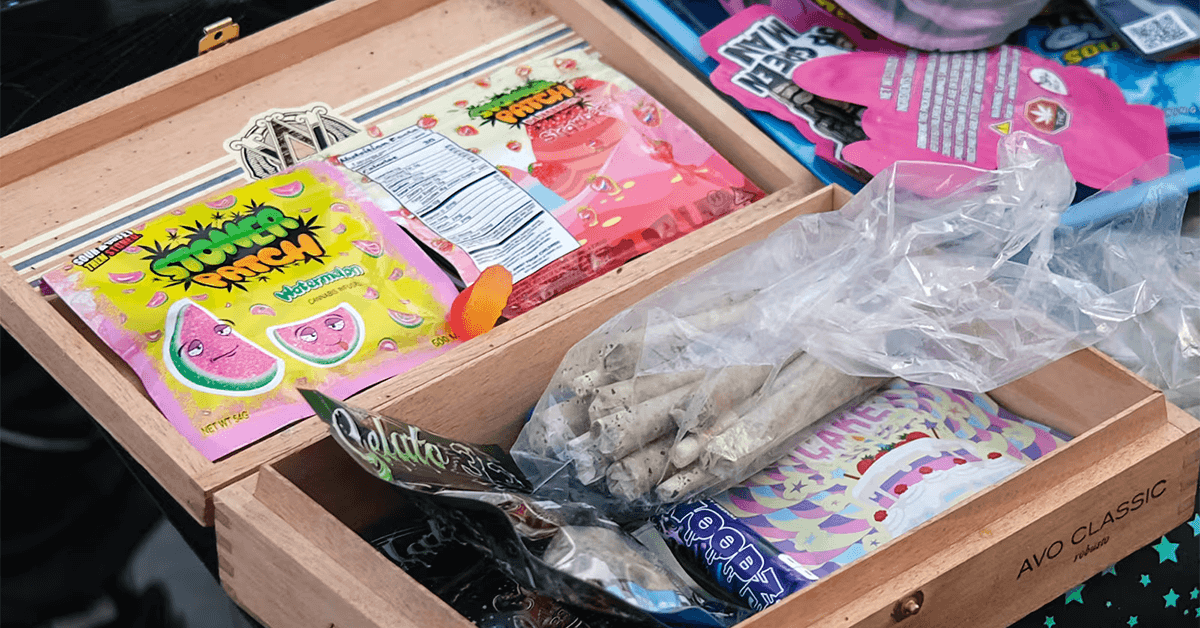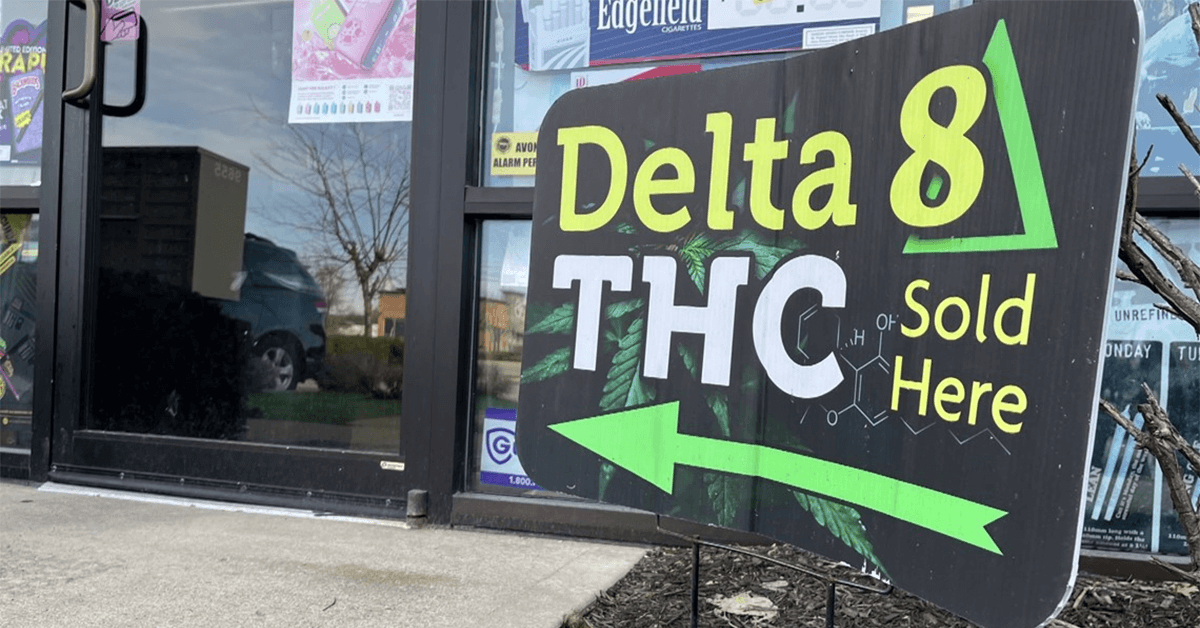Ionia County Hosts Town Hall to Discuss Youth Substance Abuse

A town hall meeting is scheduled in Ionia County to address concerns regarding underage drinking, vaping, and cannabis use among the youth. The event will take place from 6:30 to 9:30 p.m. on Friday, May 17th, at the Ionia Armory Community Center located at 439 W. Main St.
Organized by the Ionia County Health Department in conjunction with the Ionia County Substance Abuse Initiative Coalition, this adults-only gathering aims to enhance awareness and foster community involvement in tackling substance abuse issues. Charlean Hemminger, the coalition's coordinator and a health educator at the Ionia County Health Department, highlighted the town hall's support from state and federal grants, including the Michigan Department of Health and Human Services and the Drug-Free Communities Grant.
Matthew VanCamp, who joined the Ionia County Health Department as the Drug-Free Communities Grant Coordinator earlier this year, emphasized the significance of the event for parents. He noted that the town hall offers an excellent platform for parents to learn effective communication strategies with their children concerning alcohol, nicotine, and vaping.
The keynote speaker, Cara Ludlow, assistant director of wellness and counseling services at the College of Osteopathic Medicine at Michigan State University, will address the challenges faced by children today and the importance of parental engagement in their lives.
Attendees who participate in a survey at the event will be rewarded with a voucher for the Taqueria El Azteca food truck or a gift card to a local restaurant, highlighting the importance of community feedback in such initiatives.
Through this event, organizers aim to galvanize community efforts to reduce substance abuse among the county's youth by empowering parents and providing access to community resources.
Alarm Over Cannabis Edibles Marketed Like Candy: Detroit Schools Seek Intervention

Detroit school district leaders are voicing their concerns about a troubling trend: the increasing use of cannabis edibles and vape pens among students. In a letter addressed to state lawmakers, Detroit Public Schools Community District Superintendent Nikolai Vitti and school board members highlighted the urgent need for legislative action to combat this issue.
The letter revealed startling statistics that show a significant rise in drug-related incidents within the schools. From the 2019-20 to the 2020-21 school years, the district recorded 289 drug-related incidents. This number dramatically increased to 1,735 incidents between the 2021-22 and the 2022-23 school years, with 745 infractions reported just this school year.
Vitti and the board members are particularly concerned about the accessibility and appeal of cannabis products to students, noting that some edibles are packaged to closely mimic popular candy brands, making them nearly indistinguishable from non-cannabis products. This resemblance not only misleads students but also simplifies the distribution of these products within schools. An accompanying image in the letter shows edibles packaged similarly to well-known candies like Skittles and Starburst.

The leaders are calling for several specific safety measures:
- Mandatory clear labeling on edibles to distinctly indicate the presence of cannabis.
- A ban on packaging that mimics the appearance of non-cannabis candy.
- Allocation of funds for schools to acquire detection systems for vape pens and cannabis, with the funding sourced from cannabis sales and taxes.
- The launch of a public awareness campaign financed by cannabis legalization revenues to educate the community about the importance of securing edibles away from children and the potential risks children face when they have access to these products.
Additionally, Attorney and DPSCD parent Marcia Spivey shared her concerns, emphasizing the need for better coordination between city leaders and school officials, particularly regarding the impact of local cannabis legislation on families and students.
The district's plea underscores a growing concern in educational environments about the implications of cannabis legalization and the necessity for targeted legislative responses to protect students and ensure the safety of school environments.
Health Concerns Mount as Delta-8-THC Gains Popularity Among Teens

Approximately one-third of high school seniors in the United States have used cannabis in the past year, according to recent findings from the Monitor the Future study conducted by the University of Michigan. This annual survey provides insight into the substance use trends among American teens, drawing on data collected from 22,318 students at 235 public and private schools nationwide from February to June 2023.
In addition to traditional cannabis use, the study revealed that about 11% of 12th graders have experimented with delta-8-THC, a psychoactive compound derived from hemp and known for producing a milder, euphoric high compared to delta-9-THC found in cannabis. Despite its legal ambiguity and availability in child-friendly forms such as gummies and chocolates, delta-8-THC is legally accessible in 22 states plus Washington, D.C., often with minimal regulatory oversight.
The widespread legal status of delta-8-THC can be attributed to the 2018 Farm Bill, which excluded hemp from the federal list of controlled substances, inadvertently making derivatives like delta-8-THC widely available, even to minors in some states. This availability has raised concerns among health experts about the potential risks associated with its use, especially among teens.
Nora Volkow, Director of the National Institute on Drug Abuse, emphasized the significant number of adolescents using delta-8-THC and expressed concerns about the lack of research on its effects. "The accessibility of such substances to teens is alarmingly high. We need to educate young people about the risks and ensure that those who need help can access treatment for cannabis use disorders and other mental health issues," Volkow stated.
The study also highlighted the changing perceptions and increased potency of cannabis products. Ryan Sultan, assistant professor of clinical psychiatry at Columbia University, noted the need for a nuanced understanding of cannabis's effects. He pointed out that while cannabis is not the dangerous "reefer madness" substance once feared, it is also not a harmless cure-all. Sultan's research indicates that adolescents using cannabis are significantly more likely to suffer from major depression, suicidal thoughts, and other negative outcomes compared to their non-using peers.
Furthermore, the use of cannabis among young adults aged 19 to 30 has reached new heights, with a notable rise in cannabis vaping, which poses distinct health risks and increases the ease of use in discreet environments like schools.
This comprehensive data underscores the importance of continued research into cannabis and its derivatives, informed public health policies, and targeted educational efforts to address the complexities of cannabis use among America's youth.
Questionable Substances Detected in Michigan's Cannabis Market

In recent findings by a Michigan-based cannabis testing laboratory, alarming concerns have been raised about the safety and transparency of cannabis oil used in vape pens and edibles. Josh Swider, CEO and co-founder of Infinite Chemical Analysis Lab, reported that more than a third of the tested products contained harmful substances not disclosed by the manufacturers. These include diluting agents like MCT oil, synthetically altered cannabis oils, and prohibited pesticides.
Swider, whose company operates labs in both Jackson, Michigan, and San Diego, California, emphasized the severity of these findings. He highlighted that unsuspecting consumers are likely unaware they are inhaling or ingesting products that may not be as pure or safe as claimed. Such transparency issues are concerning, particularly when the substances involved include synthetically converted THC oil, which is the psychoactive component in cannabis responsible for its high effects.
The impetus for these tests originated from a Michigan group dedicated to cannabis safety, which remains unnamed. They commissioned Swider's lab to develop specific tests to detect these substances, revealing significant issues with product purity and labeling in the industry. The presence of MCT oil, a common carrier oil derived from coconut oil, was notably contentious. While generally recognized as safe for food, its inhalation poses potential health risks. This has led to its ban in inhalable cannabis products in several states, including Colorado, especially following the outbreak of vaping-related lung diseases in 2019.
The synthetic conversion of CBD to THC, another process detected in the tests, is akin to pharmaceutical manufacturing and remains controversial. While not explicitly labeled as unsafe, the lack of definitive safety data makes it a risky inclusion in consumer products, according to Swider.
Study Reveals Toxic Metal Content in Cannabis Rolling Papers

A groundbreaking study published in the journal ACS Omega has brought to light concerning levels of heavy metals in cannabis rolling papers purchased across Michigan. Conducted by researchers from Lake Superior State University, the study provides a detailed examination of the potential health risks associated with heavy metals in rolling papers used for smoking cannabis.
Michigan-Sourced Rolling Papers Under the Microscope
The researchers, led by environmental scientist Derek Wright, procured a variety of rolling papers and paper cones from retail stores across Michigan, focusing on those recommended by store managers as popular among consumers. They conducted a meticulous analysis, testing the metal content of these products in the laboratory. The study assessed 53 different products for their concentration of 26 metals, revealing some disturbing findings.
Alarming Levels of Metals Found
The study found that about a quarter of the tested rolling papers contained copper levels exceeding the safety guidelines for inhaled pharmaceuticals. Notably, colored rolling papers, such as those with blue, green, and purple stripes, were particularly high in copper, likely due to copper-based pigments used in these colors. Chemical analysis of a blue paper confirmed the presence of multiple copper compounds, including oxides, hydroxide, and silicate.
Besides copper, elevated levels of chromium, vanadium, and antimony were also detected, the latter most likely from the polyethylene terephthalate used in the cone tips. These metals can pose significant health risks, especially with frequent exposure.
Health Risks and Consumer Awareness
The study's findings are especially concerning for heavy cannabis users, defined in the study as those who smoke up to 5 grams per day. These users could be inhaling copper at levels 4.5 times higher than the maximum exposure limits, which can lead to lung irritation and increase the risk of neurodegenerative diseases like Alzheimer's.
The lack of regulation in the rolling paper industry is a critical issue highlighted by the researchers. While some states have strict regulations on metal content in cannabis flowers, these do not extend to rolling papers, even though these papers are integral to the consumption method for many users.
The Call for Safer Practices and Further Research
The study advocates for the removal of unnecessary metals and other harmful components from rolling papers. Further research is needed to determine the specific risks associated with these exposures, but the initial findings clearly point to the need for stricter safety standards and better consumer protection, particularly for medical marijuana users who may already be at risk due to health conditions.
Implications and Future Directions
This study not only sheds light on a previously underexplored area of cannabis consumption but also underscores the urgent need for industry and regulatory reforms. As cannabis use continues to rise, ensuring the safety of all related products is crucial to protect consumers from potential hazards.
Safety First: Michigan Officials Urge Responsible Celebration on 4/20

As 4/20 approaches, marking a day celebrated by cannabis enthusiasts, Michigan traffic safety officials are intensifying their calls for responsible celebration. Recognized unofficially as a cannabis appreciation day, 4/20 also serves as a critical moment for raising awareness about the dangers of driving under the influence of cannabis, which remains illegal under Michigan law even though recreational use is permitted for adults.
Katie Bower, Director of the Michigan Office of Highway Safety Planning, emphasized the importance of safety on this high-profile day. "Those who plan to use cannabis on 4/20—or any day—should not drive," Bower stated. She advises anyone who finds themselves impaired to seek alternative transportation methods such as taxis, rideshares, designated drivers, or public transportation.
Statistics underscore the gravity of the issue. In 2022, Michigan recorded 1,053 fatal crashes, with 21.7% involving drugs. Moreover, of the drug-involved crashes, over half were single-vehicle incidents, which points to the heightened risk that impaired drivers pose to themselves and others. Cannabis affects the driver's ability to react quickly and maintain cognitive function, crucial for safe driving.
Lt. Rene Gonzalez of the Michigan State Police also weighed in, reminding residents that "even though this is a day to celebrate, it is still illegal to drive while you are under the influence of any type of drug, including cannabis." The data is alarming: out of 15,000 car crashes in Michigan in 2022, 229 fatal accidents involved drug-impaired drivers.
Authorities like Scott Wrigglesworth, the Ingham County Sheriff, urge the public to act responsibly. "If you've been smoking, you're probably legally intoxicated, and you should find another way to get yourself from point A to point B," he cautioned. The Michigan State Police and other law enforcement agencies will likely be on high alert during the holiday to prevent accidents related to impaired driving.
As 4/20 continues to grow in popularity among cannabis enthusiasts, the day also represents a significant opportunity to educate the public on the risks of drug-impaired driving and the importance of responsible consumption practices. The Michigan Office of Highway Safety Planning, along with national organizations like the National Highway Traffic Safety Administration, is using this occasion to remind everyone on the road: the decisions you make while impaired don't just affect you—they affect everyone around you.


 Helpful Links
Helpful Links